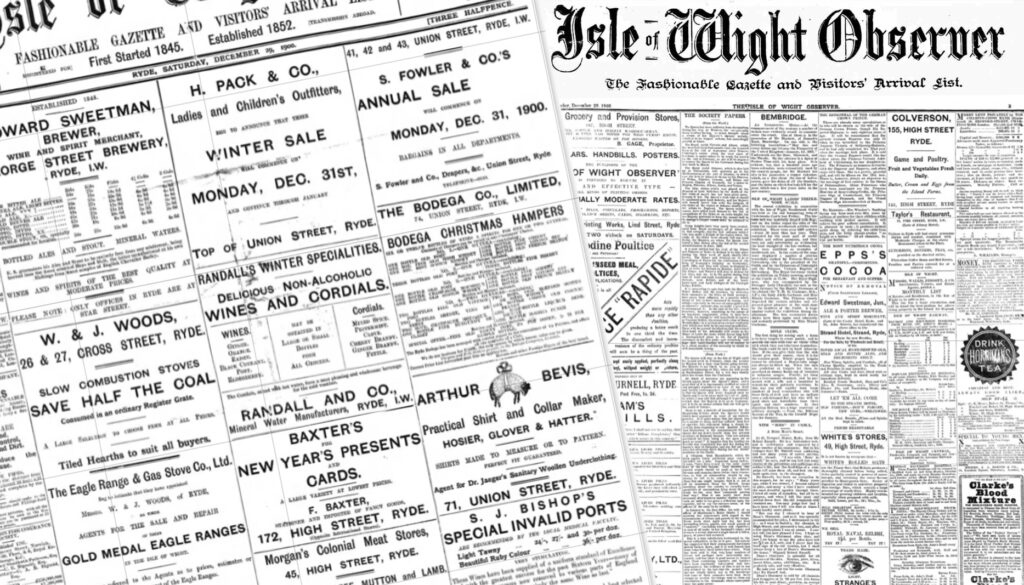The Isle of Wight Observer published on 6th May 1882 tells of a dreadful storm – which led to a boat sinking near Swanage with the loss of all hands – but Yarmouth mariners make the best of it!
YARMOUTH.
On Saturday the weather was the worst ever experienced in this district. The wind in the morning was southerly, accompanied by torrents of rain, and in the afternoon the wind came from the westward, and was of hurricane force, causing a very heavy sea to run.
The afternoon steamer from Lymington was forced to seek shelter in Lymington River again, there being too much sea to cross to this place. A schooner named The Saint, of Runcorn was fouled by a Boulogne fishing lugger, No 1454, which caused the Saint’s anchor to come home, and which we hear was taken away by the lugger.
The Saint was then driven on to a brigantine named The Vine, of Newport. The Saint then let go her other anchor, which brought her up, without doing further damage. On Sunday a large quantity of wreckage was driving about the Solent, and a fair amount was brought into this port by local boats.
This wreckage included some valuable spars, and also some parts of hull, covered with metal. A boat in a damaged condition was also brought in, the name on stern being Alexandrovna, a flag on bow with letter S in centre, which we understand corresponds with the name of owner of a vessel named Alexandrovna. We hear that a full rigged ship was observed to go ashore near St Alban’s Head. We are very pleased to note that all our little Yarmouth craft rode the gale out in safety. There’s an old saying “that an ill wind blows no man any good.”
We think that the watermen and others would tell one rather different to this here, as the late gale has done them a great deal of good, while on the other hand it has done also a large amount of harm. A further quantity of wreckage has been brought in here, and the coasts in the neighbourhood are strewn with timber, beams, &c, no doubt all from the ill- fated Alexandrovna. We understand nothing has been heard of the crew of this vessel, so it is thought that between 20 and 30 poor fellows have met with a watery grave.



